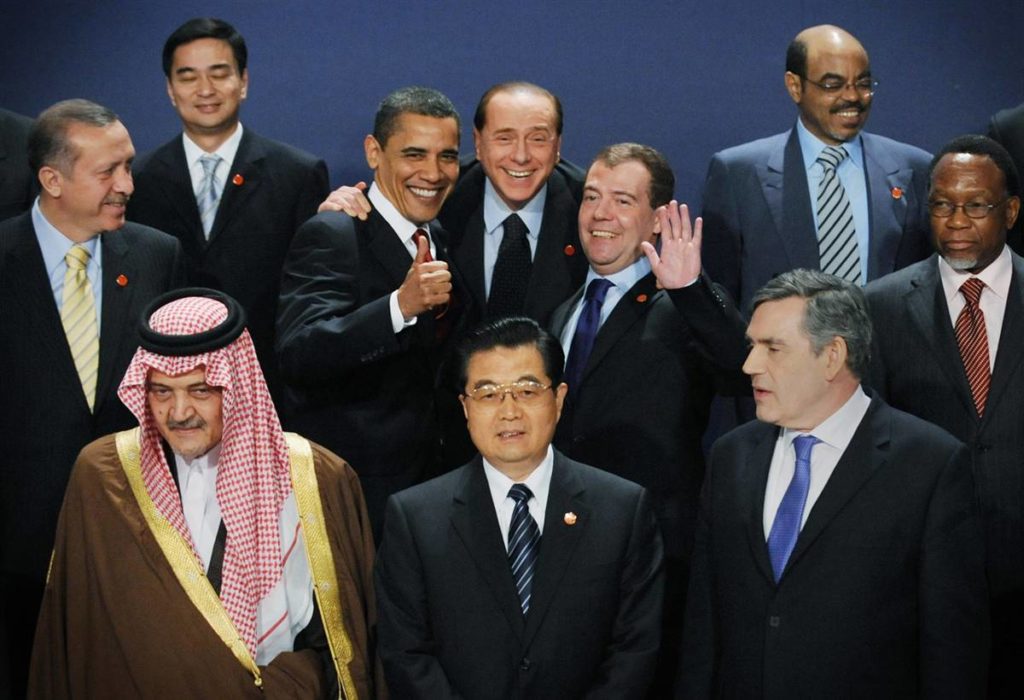by Jacob Nestle
Libertarian presidential candidate Gary Johnson recently had another self-proclaimed “Aleppo moment” when asked about his favorite foreign leaders. Unfortunately, he could not promptly answer this question, before eventually settling on former Mexican President Vicente Fox. It is hard to blame Johnson, as there are very few world leaders he could have named. However, after thorough research, here is a list of 5 libertarian(ish) foreign leaders.
5. Mark Rutte
Prime Minister of the Netherlands and leader of the People’s Party for Freedom and Democracy, Rutte is one of the more libertarian leaders in the country. Like his party, he is laissez-faire on economics. Though his party supports universal healthcare, they’re otherwise for small government, deregulation, and free trade.
Like many American libertarians, Rutte has indicated that he doesn’t want to be a politician forever. Before going into politics, he spent a decade in industry. He still spends one morning every week teaching Dutch and Civics at a secondary school. Additionally, he made a very libertarian argument against Brexit and in favor of immigration, saying in June, “The Netherlands and the UK are both seafaring nations and so our ability to create jobs and to generate future growth is built on the free market. Our national prosperity is built on our open borders.”
4. James Alix Michel
President of the small island of Seychelles, Michel pushed towards the liberalization of the country’s markets. During his time in office, he has reduced government spending and established strong monetary and fiscal policies. However, on September 27, he announced that he would resign from office on October 16, and his vice president will become the new president of Seychelles.
Michel has a mixed record, at times referred to as a “free market socialist.” For example, in 2007, he called for partial privatization of the Seychelles Marketing Board (SMB), a government organization which deals with imports into the country. However, he at the same time supported the idea that government would maintain 70% shares in the privatized enterprises. Therefore, though far from a pure libertarian, Michel could be said to support incremental change in the free market direction, which is more than most world leaders can claim.
In 2012, in reference to the Seychelles Trading Company (STC) he spoke of how to reform the government program and allow the market to do its work, saying:
In the context of the free market and an open economy like ours – where anybody can import
goods, and where there is no price control – competition is supposed to be a principal factor
in price regulation. And this is where STC has a critical role to play. I have instructed STC to
diversify its sources of supplies overseas in order to get better value for its imports and as a
means to bring more competition in the local market, bring down prices as far as possible and
give all Seychellois a better deal.
3. Malcolm Turnbull
The Prime minister of Australia, Turnbull is constantly pushing for tax cuts that help national business. Turnbull admitted to using cannabis in college. Could it be that he is a fan of both marijuana and free markets? On the difference between his Liberal Party and the opposition Labour Party, Turnbull says “I think the best way I’ve been able to really distill it is that the Liberal view of the role of government is to enable the citizen to do his or her best. Whereas [with] Labor on the other hand, deep in their DNA is a belief that government’s role is to determine what is best.”
Just like libertarians, Turnbull does not blame “market fundamentalism” for the 2008 US financial crisis. Rather, he cites “big government” — specifically the home mortgage practices of the government-owned Fannie Mae and Freddie Mac. He is also a strong supporter of same-sex marriage. He also became one of the only federal politicians in Australia to oppose a police raid of an art gallery where a photograph of nude, pubescent girl was displayed. He asserted that though the artwork was “edgy,” there was almost no chance of prosecution. He also vociferously defended Julian Assange against attacks after Assange’s publication of Wikileaks showed some Australian state secrets.
2. Prince Hans-Adam II
Head of State of Liechtenstein, Prince Hans-Adam II might be the leader of the most free market country in Europe. He spoke at the International Students for Liberty Conference and interviewed with Reason TV earlier this year. Nick Gillespie and Joshua Swain were apparently so impressed with the head of state that their title and subtitle read, respectively, “Is Liechtenstein a Libertarian Utopia? Prince Hans-Adam II says open borders, low taxes, free trade, and small government should define ‘the state in the third millennium.'”
1. Vít Jedlička
Vit is the founder and president of the Free Republic of Liberland. Even though Liberland is self-proclaimed and not internationally recognized, Vit is still the most libertarian foreign leader and president of the country whose motto is “to live and let live.” It does not get more libertarian than that.
He explained his inspiration behind creating Liberland:
For so long, people from all around the world have clung to the idea of living in a free state, a place where there is a minimal interference from a centralized government. People around the world have searched for a place to make this idea happen. But, the vital question was always how to go about it.

